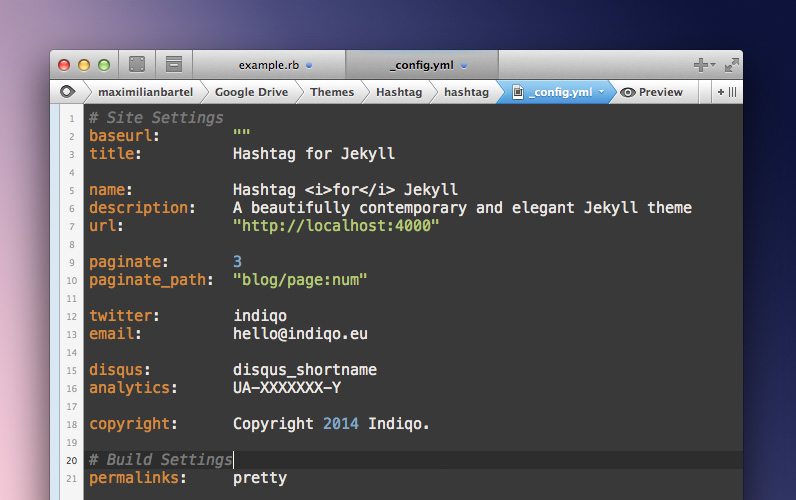Configuration
Wether you'd like to change the sites title, description and contact email address or just like to enable the comment system or Google Analytics — all of it can be done in one single place.
Now that you should be familiar with YAML and basic front-matters, it should be easy to adjust the sites global settings.
In order to do so, please open up the _config.yml file in your favorite code or text editor.
Similar to front-matter of posts and pages, the area between both triple-dashes includes various options to configure the site.

Default Settings
This is how the default config file looks like — not too complex though
Some of them, such as title, name, description, url or copyright should be self-explaining, so let’s have a look at the others below.
- baseurl: The
baseurlcan remain empty by default and is just required if you’re going to host your site in a subfolder of your webspace such as/blogfor example. In this case, you would have to add/blogas value of this option to make sure paths will be correct. - paginate: Defines the amount of posts displayed per page on the homepage.
- paginate_path: This option defines the folder structure for paginated index pages. It’s slightly more advanced and you can just leave it as it is — for more details, please feel free to have a look at this page on the Jekyll website.
- twitter: Please feel free to add your Twitter username without the @ here or leave it empty. The username will be used for Twitter Cards supported by the theme.
- disqus: Sign up for a free account on Disqus and add your unique shortname to this option in order to enable comments for each post.
- analytics: Add your Google Analytics Tracking ID here to enable statistics and tracking of each post and page.